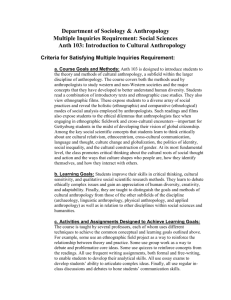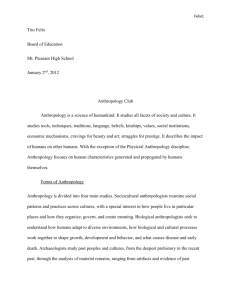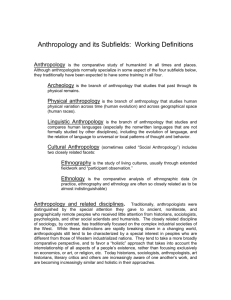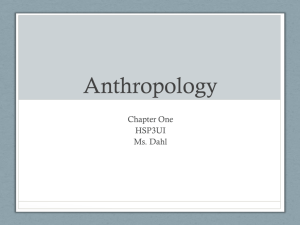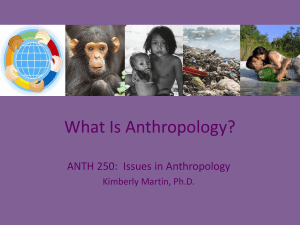CHAPTER 1 VOCABULARY QUIZ
advertisement
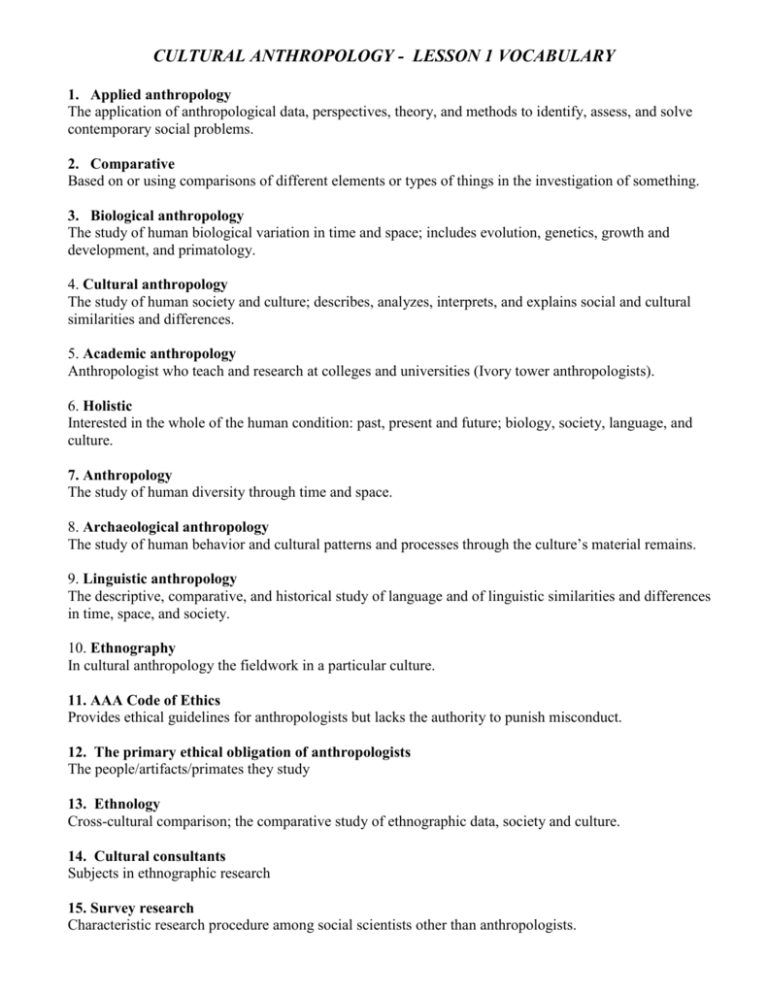
CULTURAL ANTHROPOLOGY - LESSON 1 VOCABULARY 1. Applied anthropology The application of anthropological data, perspectives, theory, and methods to identify, assess, and solve contemporary social problems. 2. Comparative Based on or using comparisons of different elements or types of things in the investigation of something. 3. Biological anthropology The study of human biological variation in time and space; includes evolution, genetics, growth and development, and primatology. 4. Cultural anthropology The study of human society and culture; describes, analyzes, interprets, and explains social and cultural similarities and differences. 5. Academic anthropology Anthropologist who teach and research at colleges and universities (Ivory tower anthropologists). 6. Holistic Interested in the whole of the human condition: past, present and future; biology, society, language, and culture. 7. Anthropology The study of human diversity through time and space. 8. Archaeological anthropology The study of human behavior and cultural patterns and processes through the culture’s material remains. 9. Linguistic anthropology The descriptive, comparative, and historical study of language and of linguistic similarities and differences in time, space, and society. 10. Ethnography In cultural anthropology the fieldwork in a particular culture. 11. AAA Code of Ethics Provides ethical guidelines for anthropologists but lacks the authority to punish misconduct. 12. The primary ethical obligation of anthropologists The people/artifacts/primates they study 13. Ethnology Cross-cultural comparison; the comparative study of ethnographic data, society and culture. 14. Cultural consultants Subjects in ethnographic research 15. Survey research Characteristic research procedure among social scientists other than anthropologists. 16. Informed Consent Agreement to take part in research, after the people being studied have been told about the research’s purpose, nature, procedures, and potential impact on them. 17. Rapport A relationship marked by harmony, conformity, accord or affinity. 18. Reflexivity Acknowledging biases and limitations of anthropology in general and any one work in particular. 19. Participant observation Participating in and observing the life of others. The primary field technique of cultural anthropologists. 20. Genealogical method Procedures by which the ethnographer discovers and records connections of kinship, descent, and marriage. 21. Interview schedule Ethnographic tool for structuring an informal interview. 22. Key cultural consultant A person who is an expert on a particular aspect of local life 23. Life history The life story of a key consultant. 24. Longitudinal research Long-term study of a community. 25. Team research Coordinated research by multiple ethnographers. 26. Culture shock The whole set of feelings about being in an alien setting and the ensuing reactions. 27. A global person A person that does not believe that his/her nation is the best at everything and that everyone else wants to be just like him/her — rather he/she is aware that other cultures of the world have lives and viewpoints different from his/ her own.



